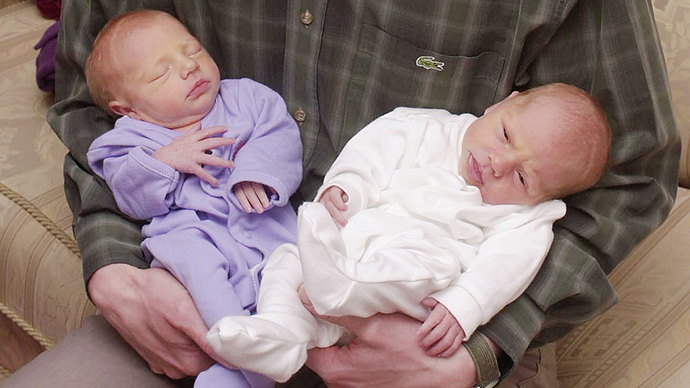Twin study says genetics 'to blame for nearly all autism cases'

Autism spectrum disorder (ASD) is caused by genetics in as many as 98 percent of cases, a major British study has revealed. It undermines many modern theories blaming environmental factors, such as air pollution.
Scientists at King's College London have collected evidence from a population-based sample revealing that genetic factors outweigh more moderate environmental influences regards risk of autism and related traits in personality. They published their results online this week in JAMA Psychiatry.
READ MORE: Vaccines don’t cause autism, complications extremely rare – study
Over 6,000 twins, born in England and Wales between 1994 and 1996, with a variety of autism-related traits – high and low subclinical levels, as well as ASD, – participated in several evaluations: the Childhood Autism Spectrum Test (6,423 twins), the Development and Well-being Assessment (359), the Autism Diagnostic Observation Schedule (203), the Autism Diagnostic Interview-Revised (205), and a best-estimate diagnosis (207) – and all of them showed consistency in their results.
“Our main finding was that the heritability of ASD was high. These results further demonstrate the importance of genetic effects on ASD, despite the dramatic increase in prevalence of the disorder over the last 20 years,” said lead author Beata Tick in a statement.
“They also confirm that genetic factors lead to a variety of autistic skills and behaviors across the general population,” Tick added.
READ MORE: Air pollution in late pregnancy elevates risk of autism – Harvard study
Identical twins showed much higher heritability estimates than fraternal twins on all ASD measures – with a range from 56 to 95 percent. The study also pointed out environmental influences.

“Our findings add weight to the view that ASD represents the extreme manifestation of autistic skills and behaviors seen in the general population,” Bolton added.
READ MORE: Autism, developmental delays linked to pesticide exposure during pregnancy – study
Autism has long been considered to be linked to genetics, but the increasing spread of the disorder among US children inspired scientists to look into environmental causes, having rejected theories that supposed vaccinations could lead to ASD.
According to the most recent data, reported by US government scientists, in 2010 diagnoses rocketed to one in 68 children from one in 150 in 2000. However, the figures could simply be an indication of better diagnostics or other factors yet to be studied.












